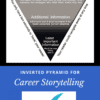
The average raise is three percent annually, according to consulting firm Korn Ferry. What if, instead of simply spending that money, you reinvested it in your career? You could potentially turn that three percent into 10 percent, 20 percent, or more.
According to the ABS, the median household income in 2018 was $82,436. With a three percent raise, that would be approximately $2,473. You could spend that money on a holiday, pay off debt, give more to charity, add to your emergency fund — or you could use that money to boost your career.
Deciding what to do with your raise — before you get it — will help put you in a better financial position in the future. Don’t forget to consider whether your raise will put you in a new tax bracket and adjust your tax withholding, if necessary, before deciding what to do with the extra money. That ensures you won’t find yourself short of cash at tax time next year.
Let’s start with a couple of questions:
- Have you received a raise in the past 12 months? ___ Yes ___ No
- How much was your most recent raise? $
- What did you spend it on?
- Are you happy with what you spent it on?
- Do you think you’ll get a raise in the next 12 months? ___ Yes ___ No
If you’re anticipating your next raise, it’s wise to start thinking about what you might do with that money — and how you can invest in yourself and increase the return on investment you get from your next raise. But remember: you won’t get the raise all at once, so don’t spend the money before you get it.
Here are some ideas for how to spend your raise:
If you’re looking to make a job change, spend that money on your job search:
For someone making in the $55,000 to $65,000 range (likely a mid-level professional), the average cost of a résumé written by a professional résumé writer is between $750–$1,200. Combine that with a LinkedIn profile update and some assistance developing your personal brand, or job interview preparation, and you’re looking at spending between $1,500-$2,000.
Jobseekers who work with a professional résumé writer find a new job faster, often negotiate a higher starting salary and have more confidence in their skills and abilities as a result of interview-winning job search documents.
You may also want to invest in technology that will help in your job search. For example, upgrading to a Premium subscription on LinkedIn can help you by providing access to InMails (emails you can send to people who are not already connections) that you can use to communicate with recruiters and hiring managers.
With LinkedIn’s Premium Career service, you can also see who has viewed your profile over the last 90 days (great for knowing if a hiring manager or recruiter has checked you out!) and get access to more than 13,000 on-demand learning modules (video courses for skill development) with LinkedIn Learning. (You can also add completed courses to your LinkedIn profile.) The site’s “Applicant Insights” feature also analyzes your profile and directs you to open opportunities, including providing salary data when browsing jobs. LinkedIn Premium costs between $29.95 and $59.99 per month.
Speaking of salary research, while you can conduct a lot of information-gathering for free, you can also purchase more detailed, personalized salary data and reports from some sites. For example, Salary.com offers a personal salary report for prices ranging from $29.95 to $79.95, depending on what you choose to have included.
Also, consider spending some of your raise money on new clothes that will help make a great first impression in the job interview. You could spend just a fraction of your raise amount and have an outfit that will help you look polished and professional. Don’t forget a fresh haircut (but don’t get it cut right before the interview!) and remember to pay attention to things like making sure your shoes are polished.
Not sure what direction you want to take with your career? Hire a career counsellor or career coach to help you explore your interests. Consider taking online assessments, such as the DISC, to give you direction.
Lost, stuck, or feeling stressed? Consider working with a professional counsellor, social worker, or psychologist. A few sessions can help reduce your anxiety and give you focus and direction.
If you’re looking to boost your current career, spend that money on:
A degree. College is expensive, so it may take more than $2,400 to get you where you want to go with higher education, but it can be a start. Maybe you need a couple of classes to finish your undergraduate degree. Or you could start taking classes towards a master’s degree, MBA, or even a Ph.D.
Certifications or training. Certifications are less time-consuming and expensive than university degree programs. Would an additional certification or training boost your knowledge and skills? Depending on your career field, a certification could cost you between $1,000 and $2,000, but could also increase your capability to do your current job.
Technology or equipment. Would a new computer, tablet, or smartphone increase your productivity? How about purchasing tools that you could put to work in your job?
Buying some books. Whether physical or digital, are there books you should be reading to get ahead in your job? For example, reference materials, inspirational books, or motivational biographies?
Attending a conference. Looking to increase your knowledge and make new connections? Consider spending the money to attend an industry conference. You can find out the latest advances in your field while also making valuable networking contacts that can help you get ahead in your career.
Taking courses online. You don’t have to travel somewhere to learn something new. You can find online courses on almost any topic — ranging from industry-specific skills to communication techniques to speed reading to management strategies. Some of these may be free, but some can cost up to a couple of hundred dollars.
Joining an association. The right association can help connect you to people who can become a resource to you in your job and your career. Invest your three percent towards the annual dues, but also attend in-person networking events, take advantage of continuing education opportunities, and invite your new connections to breakfast! Associations often also provide access to salary data, which can help you negotiate your next raise.
Learning a new language. Speaking a second language may help you get ahead in your career. Depending on your industry, consider learning Spanish or Chinese. You can take a class locally or invest in an online course through Udemy, Babbel, FluentU, or Rosetta Stone.
Build your brand and online presence. Consider purchasing your name as a domain name (which can cost less than $15 a year) and creating a website to showcase your work. Invest in having your résumé and LinkedIn profile content written by a professional résumé writer.
Investing in your appearance. Using your raise to pay for something like braces or LASIK eye surgery can also have a positive impact on your career. We wish people wouldn’t judge us by our appearance, but they do.
Have a long-term plan to work for yourself?
If you’re looking to make a career change and become an entrepreneur, consider spending the money on a side hustle that could turn into your main hustle. Invest in equipment you need to get started, or technology (a website, for example). Or, if you already have a side hustle, put the money into advertising and marketing to get more customers. Maybe try some targeted Facebook ads, or advertise in a niche directory that reaches your ideal client.
While that three percent may not be enough to let you quit your job now, you can start building the foundation that will help you “bring the boat closer to the dock” so you can make the leap from where you are now to where you want to be.
Multiply the Impact of Your Raise
The most important thing to remember when spending your raise is to do so intentionally. Don’t let that money just slip through your fingers as you absorb it into your paycheck. Have a plan for what you’re going to do with it so that you can make the most out of it — hopefully, leading you to an even bigger paycheck in the future.

